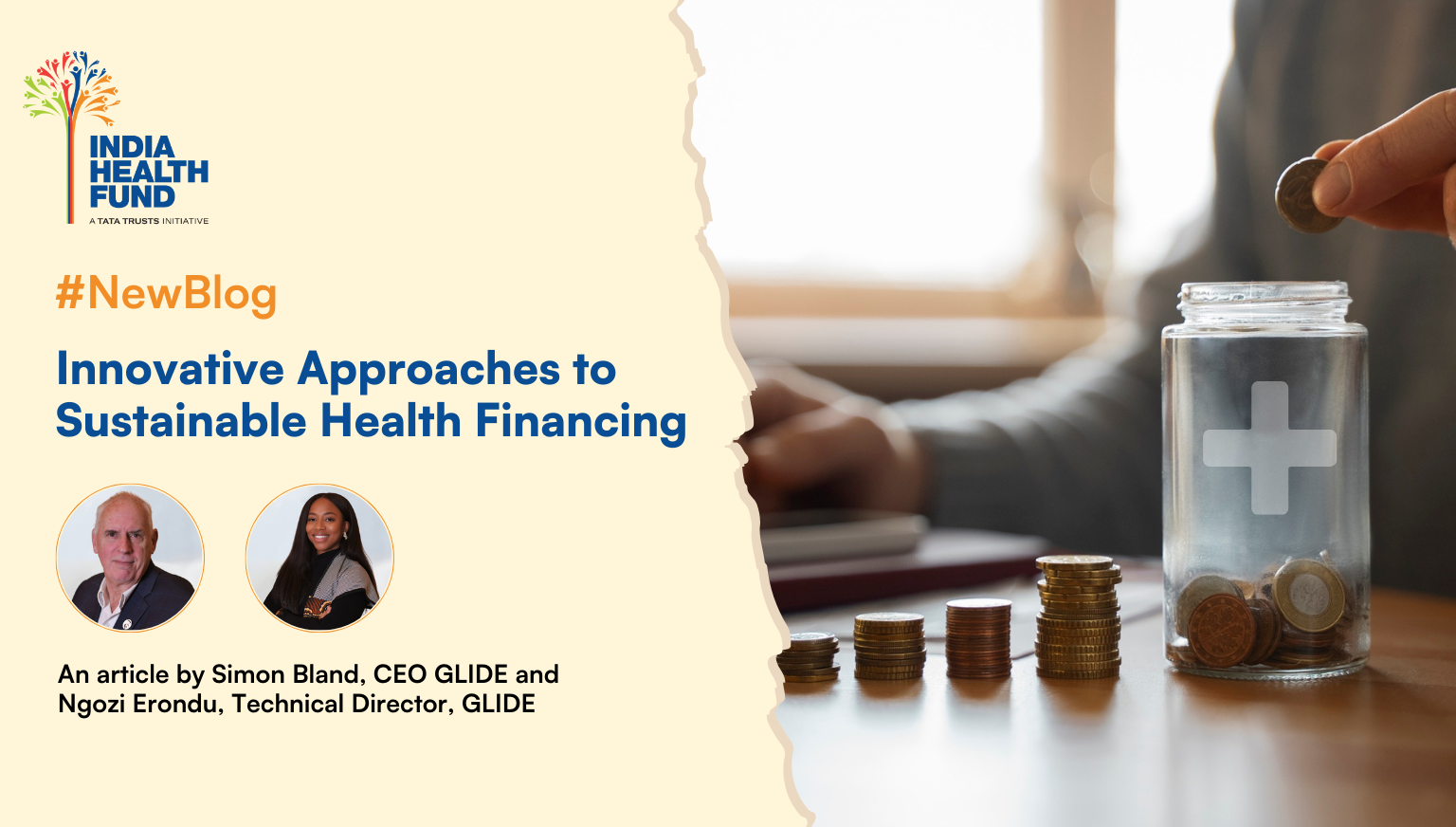


In a world increasingly defined by overlapping crises—pandemics, climate change, cost-of-living, migration, and conflict—no single solution can effectively address the breadth and scale of these challenges. Global health for example—a field that strives to provide and protect health for all—demands collective action and, increasingly, a transformative approach to financing.
The finance needs for health and climate crises alone far surpasses traditional aid and government budgets. Specifically, global expenditure on global health was 9.8 trillion in 2021—with much more needed to reach universal health coverage (UHC)1, additionally, recent call to reform COP estimated a need for US$1 trillion per year to finance climate adaption needs in developing countries by 20302. The reality is that multiple crises occur simultaneously, amplifying their devastating impact on vulnerable populations. The poorest regions, particularly those affected by neglected tropical diseases (NTDs), face an uphill battle. NTDs, which impact nearly two billion people, disproportionately affect low- and middle-income countries, robbing communities of economic potential through diseases that are preventable and treatable3. These diseases sap the economic potential of entire populations by causing life-long impairments. Frustratingly, NTDs are largely preventable, and many can be eliminated with the right resources to detect and treat them early. And while estimating one number for such a diverse group of diseases and regions is difficult, when looking across multiple studies the average cost to treat those at risk range from US$ 0.40 to US$ 0.704 per person. The lack of funding to provide new diagnostics and treatments underscores a broader issue: traditional funding models are inadequate.
This is where innovative financing (IF) comes into play. IF presents a significant opportunity not only for addressing NTDs but also for tackling several other global health conditions that lack sufficient resources to give disease control or even disease elimination a fighting chance. While not new to global health, having been used in various forms for nearly two decades, its application to NTDs and broader global health threats is gaining renewed attention. For instance, COVAX, a platform that used the Advance Market Commitment (AMC) mechanism, ensured equitable access to COVID-19 vaccines for low-income countries. Similarly, the International Finance Facility for Immunisation (IFFIm) has accelerated access to childhood vaccines since 2006 through vaccine bonds.
These tools are proving adaptable to a range of global challenges. In the fight against NTDs, the Global Institute for Disease Elimination (GLIDE)—an Abu Dhabi-based think tank focused on advancing knowledge for disease elimination—led an expert working group in 2023 to explore which IF tools could best be applied to NTDs. In a discussion paper5 detailing these findings, the group highlighted several financial instruments, like pooled procurement mechanisms, which have been used effectively for other diseases and could be adapted for NTDs. These mechanisms could revolutionize the way we procure and deliver diagnostics and treatments, especially for historically neglected diseases. The group also identified creative solutions for stimulating new research and development for life-saving preventive and therapeutic interventions, like milestone-based prizes, that remain largely unexplored. Ultimately, the group arrived at a simple but critical message: by leveraging global financial resources and existing health infrastructure in creative ways, we can make life-saving treatments accessible to all.
However, IF isn’t just about addressing immediate health needs—it’s about building resilience. The Bridgetown Initiative6, spearheaded by Barbadian Prime Minister Mia Mottley, calls for a reimagined global finance system that blends public and private investments to support long-term, systemic improvements. By engaging private capital for research, development, and infrastructure, it opens doors for countries—especially those burdened by debt—to invest in their futures without exacerbating financial strain.
The Accelerating Sustainable Health Financing in Africa: The Africa Leaders Meeting Declaration7 reinforces this call, urging African nations to prioritize health financing as a central pillar of economic resilience. The 2023 Dar es Salaam Declaration, signed by 43 African heads of state, emphasizes the need for increased domestic resource mobilization to achieve sustainable health financing. This movement encourages African nations to explore IF mechanisms, such as blended finance, which combines public and private funds to boost investments in critical health infrastructure and achieve UHC.
These efforts recognize that sustainable financing must be integrated into broader economic and development strategies, with an emphasis on non-debt solutions like debt swaps—which exchange financial obligations for investments in health outcomes. This aligns with the Global Fund’s 2023-2028 strategy, which encourages countries to pursue blended finance approaches and partnerships with the private sector to tackle diseases like HIV, tuberculosis, and malaria. These strategies are crucial for building the shock-resistant systems needed to protect populations from recurring pandemics and climate-related disasters. Single-issue approaches are no longer feasible. Financing mechanisms must evolve to address a spectrum of challenges—from health to climate to infrastructure—through platforms that pool resources and integrate across sectors. By combining the expertise and financial muscle of global institutions, governments, and the private sector, we can build systems capable of protecting human health and well-being in an increasingly uncertain world.
Ultimately, innovative financing—and financing for health specifically—must extend beyond catastrophic events or single diseases. Traditional funding mechanisms alone are insufficient to address the scope of these challenges, particularly in low- and middle-income countries, where health systems often lack the resilience to withstand significant shocks. Global health initiatives must align with national priorities, recognizing that investments in healthcare infrastructure are a pathway to creating resilient systems capable of withstanding the polycrises of the future. Now more than ever, IF offers a path forward, providing new ways to mobilize resources for UHC, health security, and disease elimination.

Simon Bland, CBE GLIDE has over 40 years of international development experience straddling marine and natural resource management, development economics, and global health. He joined GLIDE in 2019 after six years as the Director of the UNAIDS New York Office. In 2013, Simon was awarded a CBE in the Queen’s Birthday Honors list for service to Global Health.

Ngozi Erondu, Technical Director, GLIDE brings her nearly 15 years of experience and leadership in global public health experience to GLIDE. Ngozi has spent her career researching and supporting global health governance and health systems strengthening in more than 40 countries. Dr Erondu is also a senior scholar and co-chair for an upcoming Lancet Commission exploring the health impacts of discrimination in global public health with the O’Neill Institute.
GLIDE. Discussion Paper: Innovative Finance for Neglected Tropical Diseases, 2023
https://glideae.org/resources/white-paper-innovative-finance-for-neglected-tropical-diseases/
World Bank press release. Dar es Salaam Declaration: African Leaders Make Important Commitments to Investing in Human Capital, 2023.
https://www.worldbank.org/en/news/press-release/2023/08/02/dar-es-salaam-afe-declaration-african-leaders-make-important-commitments-to-investing-in-human-capital#:~:text=The%20Dar%20es%20Salaam%20Declaration,is%20no%20time%20to%20waste.
India Health Fund is registered as Confluence for Health Action and Transformation Foundation (CHATF), a Section 8
charitable company incorporated in India, supported by the Tata Trusts.